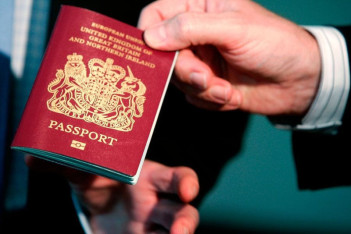I am Mariya Borevich, your personal lawyer. My primary goal is to help clients find optimal solutions to current legal issues, ensuring reliable protection of their interests. I specialize in family, civil, and military law, which allows me to effectively handle a variety of situations and cases. In family law, I provide support in resolving issues related to divorce, property division, establishing and challenging parental rights, alimony, and child custody. I understand that these matters are often emotionally complex, so I always strive to find the most delicate and fair solutions for all parties involved. In civil law, I assist in settling disputes related to contracts, property rights, compensation for damages, inheritance, and other issues concerning the protection of personal and property interests. Special attention is given to military law — supporting servicemen, protecting their rights and interests related to military service, social guarantees, and legal disputes. This area requires deep knowledge and understanding of the specifics of military service and the legislation regulating it.
Obtaining a residence permit (residence permit) in the UK can be a complex process that requires compliance with many formalities and procedures.
A residence permit (residence permit) is an official document that grants a foreign citizen the right to a long-term stay in a certain country. A residence permit can be temporary or permanent depending on the legislation of a specific country and the grounds on which it is issued.
Here are the main aspects related to a residence permit:
1. Temporary residence permit
It is usually issued for a limited period (for example, for 1-5 years).
Can be extended after the initial term.
Grants the right to reside, but does not always grant the right to employment (it depends on the specific visa category).
Reasons for obtaining:
Work (availability of an employment contract with an employer in the country).
Education (admission to an educational institution).
Family reunification (marriage or close family ties with residents or citizens of the country).
Investment or entrepreneurial activity.
Other grounds (scientific activity, volunteering, religious activity, etc.).
2. Permanent residence permit
It is issued for an unlimited period or with the possibility of automatic extension.
Gives the right to permanent residence and, usually, to employment without additional permits.
It can be a preliminary stage before obtaining citizenship.
Reasons for obtaining:
Long-term residence on the basis of a temporary residence permit (a certain number of years, determined by legislation).
Marriage with a citizen or permanent resident of the country.
Making significant investments in the country's economy.
Special programs for highly qualified specialists, scientists or cultural figures.
3.Rights and obligations
Rights:
The right to reside in the country.
Right to work or entrepreneurial activity (depends on the type of residence permit).
Access to medical services.
Access to education.
Other rights that may be granted to residents (for example, social benefits).
Duties:
Compliance with the laws and regulations of the country.
Payment of taxes (depends on tax status).
Fulfillment of other duties established by law (for example, registration at the place of residence).
4. The procedure for obtaining a residence permit
Consultation and preparation:
Contact an immigration attorney or consultant for detailed information on requirements and procedures.
Collection of necessary documents (passport, proof of financial capacity, documents on employment, studies or family ties, etc.).
Application submission:
Submitting an application to the country's immigration authorities.
Payment of required fees.
Application review:
Passing checks and, if necessary, additional interviews.
Receiving a decision (positive or negative).
Obtaining a residence permit:
In case of a positive decision, receiving a document confirming the residence permit.
Registration with local authorities (if required by law).
5. Sale and renewal of residence permit
Submission of an application for the extension of a residence permit in advance before the expiration date.
Compliance with the conditions for continuation (absence of violations of the law, availability of permanent income, etc.).
Renewal:
Updating the document in the event of a change in personal data (for example, a change of surname). Notification of immigration authorities about changes that may affect the status of a residence permit.
A residence permit is an important document for foreigners who want to live and work in another country. The process of obtaining it can be difficult, but with proper preparation and legal support, it can be successful.
Legal support in obtaining a visa in Great Britain can greatly simplify this process and help avoid mistakes.
Here is a step-by-step guide to obtaining a residence permit in Great Britain:
1. Choice of visa type
Consult a solicitor who specializes in UK immigration law. Work with your lawyer to determine which type of visa is right for you (eg, work visa, investor visa, student visa, family reunification visa, etc.).
2. Preparation of documents
The lawyer will provide a list of necessary documents that you need to prepare. Collection and preparation of documents such as passports, birth certificates, diplomas, references, financial documents, etc. If the documents are not in English, they must be translated and notarized.
3. Filling out the application
The lawyer will help you fill out all the necessary questionnaires and forms for applying for a visa, check that the documents are filled in correctly and that they meet the requirements.
4. Application submission
A lawyer will help you submit an application online through the appropriate portal.In some cases, it is necessary to submit the original documents to the visa center or the British embassy.
5. Payment of fees
The lawyer will inform you about the amount of consular fees and the methods of their payment. You pay the necessary visa application fees.
6. Biometric data
A lawyer will help you sign up for submitting biometric data (fingerprints and a photo). You go through the procedure of submitting biometric data at the visa center.
7. Waiting for a decision
The lawyer regularly monitors the status of your application and informs you of any changes. If necessary, a lawyer will help you prepare answers to additional requests from the visa officer.
8. Obtaining a decision
After a positive decision, you will receive a visa to stay in the UK. In case of refusal, the lawyer will help prepare an appeal or re-application.
9. After obtaining a residence permit
A lawyer will help you to register as a resident of the UK, will provide advice on your rights and obligations as a resident of the UK. The lawyer will provide information about possible next steps, such as obtaining permanent residency or citizenship.
10. Advantages of legal support
A lawyer knows all the nuances of immigration law and will be able to ensure compliance with all requirements, help avoid errors in documents and the application process, and take over most of the administrative tasks, allowing you to focus on other important matters.An immigration lawyer specializes in immigration-related matters, including obtaining visas, residence permits (permits of residence), citizenship, and other immigration matters. Here are the main services that a migration lawyer can provide:
- Consultations on immigration issues
Preparation of documents
Submission of applications and support
Application status tracking
Appealing refusals
Consultations after obtaining a residence permit or visa
Involvement of a lawyer from our company "Legal Marketplace Consultant" LLC in the support in obtaining a residence permit in the uk will help you reduce stress and ensure the successful completion of all necessary procedures.

































